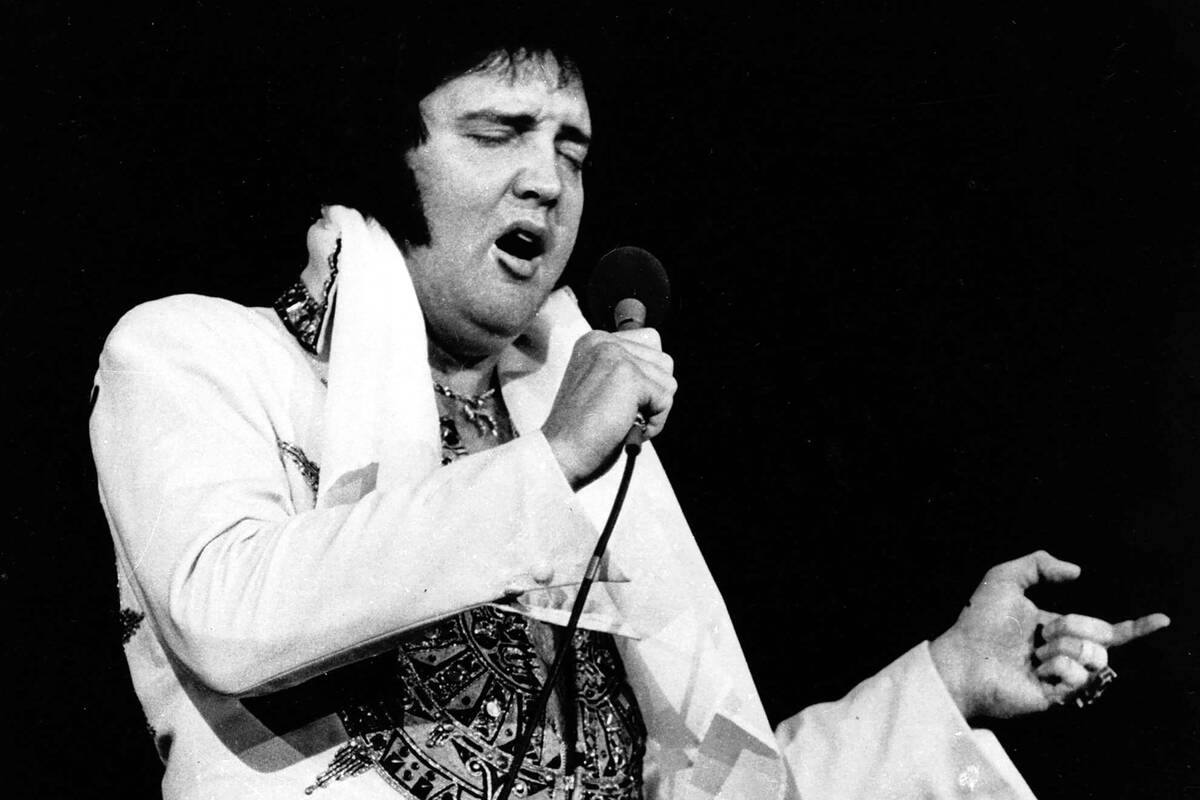Elvis Presley’s Haunting Final Words: Inside the King’s Emotional Last Moments
Decades after Elvis Presley’s sudden death, the legendary King of Rock and Roll’s final words continue to resonate, deeply moving fans and family alike.
Presley died unexpectedly on August 16, 1977, at the age of 42, due to heart complications attributed to prolonged addiction to prescription barbiturates. Yet, it was a poignant conversation two days before his passing that lingers profoundly in the memory of his stepbrother, Billy Stanley.
On August 14, 1977, Presley was engaging with Stanley in a spirited karate sparring match at his Graceland mansion in Memphis, Tennessee. The icon proudly demonstrated his new karate blades, a passion of his besides music.
However, during this playful duel, Stanley inadvertently landed a punch that caused Presley to quickly react, resulting in a minor injury to Stanley’s finger.

“He realized he hit me,” Stanley recounted recently to Fox News Digital, “so he immediately dropped the knives, took my finger, and led me to the bathroom.”
Presley, known for his humor and affection, dramatically inspected Stanley’s injury as though preparing for serious medical intervention. The brothers stood side-by-side, gazing into a large bathroom mirror, turning what began as a humorous exchange into a deeply reflective moment.
Suddenly, the atmosphere shifted. Presley became introspective and asked Stanley a question that would echo in the memories of many: “Do you believe God forgives us for all our sins?”
Despite discussing spirituality countless times over the nearly two decades they’d spent together, Presley sought reassurance from Stanley, his beloved stepbrother.
“Well, yeah, we’ve talked about this for almost 17 years, Elvis,” Stanley replied reassuringly.
Presley quietly responded, “I just wanted to hear you say that, Billy.”
This sincere exchange unveiled the emotional and spiritual burdens Presley carried toward the end of his life. Their conversation soon transitioned from faith to love, with Presley cryptically mentioning he’d only been genuinely in love “twice,” without revealing any names. “You couldn’t even guess, Billy,” Presley teased gently.

Following this emotional exchange, Presley expressed his intention to spend time reading his Bible. Stanley promised to visit again on August 16, to which Presley warmly replied, “OK, I love you.”
Stanley left Graceland with a lingering feeling to return immediately and reiterate his love for his famous sibling. However, he ultimately decided against it, reassured that he would soon see Presley again. Tragically, that reunion never occurred.
Presley’s death came as an unexpected shock. On August 16, just two days after their profound conversation, Presley was found lifeless in the bathroom of his Memphis estate by his fiancée, Ginger Alden.
According to her memoir, Ginger discovered Presley slumped on the floor in a tragic scene that remains vivid decades later.
Stanley, recounting these memories through tears, expressed regret: “I wish I had gone back.” This remorse underscores the profound emotional weight of their final interaction.
Over the years, Billy Stanley has shared several intimate insights into Elvis’s private struggles and personal beliefs. His new book, “The Faith of Elvis,” further explores Presley’s deeply rooted spirituality.
Inspired by a near-death experience Stanley himself encountered in 2018, the book delves into how Presley’s beliefs provided strength amidst personal battles and public scrutiny.

Stanley was just seven years old when his mother married Vernon Presley, Elvis’s father, in 1960. Elvis warmly embraced his new brothers, showering them with affection, toys, and life lessons.
Stanley fondly recalls how Presley would regularly encourage prayer, gratitude, and spiritual growth. “Elvis taught us to always thank God for our blessings,” Stanley said, highlighting Presley’s lifelong devotion to faith.
Yet, Presley’s life was complex, plagued by intense scrutiny, fame, and personal demons. His heavy reliance on prescription medications became increasingly problematic throughout the mid-1970s.
Stanley described Elvis’s internal struggle vividly: “He carried the devil on one shoulder and God on the other, and there was a constant battle in his mind.”
At the time of his passing, Presley was contemplating major life changes. He intended to dismiss his longtime manager, Colonel Tom Parker, who was later revealed to have embezzled substantial sums from Presley’s earnings over decades.
Presley also hoped Stanley would quit his job as an assistant jet mechanic to work alongside him once more.
Presley’s health had been steadily declining, exacerbated by his dependence on prescription medications, a fact underscored by his request for painkillers just a day before his death.

Dr. Nichopoulos, his personal physician, prescribed him multiple packages of medication, including powerful painkillers intended to help Presley sleep ahead of a scheduled performance in Maine. Tragically, these medications contributed directly to his sudden death.
Billy Stanley emphasizes the importance of understanding Elvis’s faith, asserting that Presley often turned to spiritual readings and gospel music after shows, finding comfort and peace.
“Many people don’t know Elvis would sing gospel songs until dawn,” Stanley noted. Presley’s commitment to his faith and his attempts at personal redemption remain essential to comprehending the man behind the iconic figure.
Elvis Presley’s unexpected death profoundly impacted popular culture, inspiring countless books, documentaries, and films that aim to unravel the mysteries surrounding his life and untimely demise.
The 2022 biopic “Elvis,” directed by Baz Luhrmann, reignited public interest in Presley’s complex personal life and artistic legacy.
Despite the sensational elements surrounding Presley’s death, Stanley consistently highlights the singer’s spiritual journey, underscoring Presley’s struggles and his profound humanity.
Elvis Presley’s final words to Stanley, filled with vulnerability and genuine love, reflect the timeless impact he continues to have, reminding fans worldwide of the fragile, deeply human side of one of music’s most legendary figures.
News
“I Still Miss Him”: Dolly Parton Breaks Down Mid Song as Reba McEntire Joins Her for Heart Shattering Tribute to Late Husband Carl Dean.
“I Still Miss Him”: Dolly Parton Breaks Down Mid Song as Reba McEntire Joins Her for Heart Shattering Tribute to…
This guitar carried my soul on its strings when no one knew my name…
In the electric silence that follows a singer’s last note, when the world holds its breath in anticipation of what’s…
The Voice reveals 4 returning coaches for season 28 including Niall Horan and Reba McEntire
The duo will be joined by fellow show alums Michael Bublé and Snoop Dogg. Nial Horan and Reba McEntire on…
Reba McEntire: “Drag Queens Don’t Belong Around Our Kids”
Reba McEntire Sparks Controversy with Statement on Drag Queens and Children. Country music legend Reba McEntire has found herself at…
Reba, Miranda Lambert, & Lainey Wilson Debut Powerful New Song, “Trailblazer,” At The ACM Awards
“Trailblazer” Is A New Song That Celebrates The Influential Women Of Country Music’s Past And Present Reba McEntire, Miranda Lambert, and Lainey…
Jennifer Aniston made a surprise appearance with a dazed expression and an unresolved…
Jennifer Aniston is no stranger to the public eye. For decades, she’s been one of the most beloved faces in…
End of content
No more pages to load












